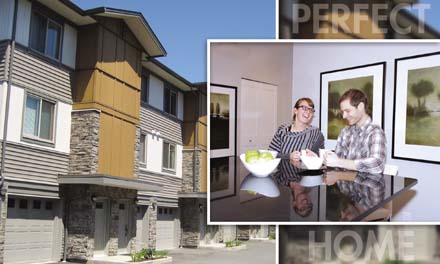Other
On Thursday February 17th DNC member Beth Malena went to city council to speak about Concord Pacific’s land swap “switcheroo.” City Council and Concord Pacific are in the process of making a deal to allow Concord to get out of their obligation to build social housing into their condo projects on the north shore of False Creek. The deal involves Concord trading the politically loaded and controversial empty lot at 58 W. Hastings, the site of the Olympic Tent Village, and another at 117 E. Hastings in exchange for being released from their social housing obligation in the False Creek condo towers.
In her excellent presentation to City Council Beth Malena outlines DNC’s criticisms of this exchange, and our concern that any city project at 58 W. Hastings be 100% social housing and not a variety of ‘social mix’ condos.
Read Jean Swanson from CCAP’s City Council presentation on “social mix” here.
The Switcheroo: Concord Pacific’s 58 W. Hastings land swap
My name is Beth Malena, and I live and work as a pastor in the DTES. I’m also a member of the DNC, which has a membership of almost 700 residents of the DTES. We advocate for the needs, interests, and aspirations of our neighbors. I’m here representing them.
It has been hard to know how to respond to this rezoning proposal, which we’ve been calling “the switcheroo.” 58 W Hastings has long been on our list of 10 sites we’ve been asking the City to buy. So in some ways, this Concord plan sounds great! The land is being handed to the City. We at the DNC could now join the City in lobbying the higher levels of government for funds to build social housing on that site.
But we have two issues with this plan – two glitches we can see.
First, the cost of the switcheroo – what Concord is asking for in return: a “buy out” from their social housing obligations on False Creek. As Jean Swanson said, we at the DNC agree that Concord can really afford to just give this land to the City, no strings attached. It’s not like these sites are very valuable to them – one is beside Insite, and they’ve already tried and failed to build on the other. If they gave it to the City, they could see it as giving back to the DTES, offsetting the effects of the condos they’ve already built in our neighborhood, on Powell Street.
The second issue we have is the rumblings we’ve heard about what some members of council want to build on these sites: “Housing for people with good-paying jobs.” If this were to take place, this “switcheroo” would be a shady deal. Not only would low-income housing NOT be built on False Creek, but it also would not be built in the DTES.
I don’t need to re-hash the reasons why we are pushing for 100% social housing on these sites. Jean has already done an excellent job of this. In brief, we are deeply concerned about gentrification. I am deeply concerned about gentrification. City staff calls for “revitalization without displacement.” I believe the “without displacement” part is impossible unless the City starts buying and using sites for 100% social housing. I’m worried that much of my congregation will be bussing in from Surrey within a few years if this doesn’t happen.
So here is my challenge to you – the challenge of the DNC:
If the City is playing “Let’s Make A Deal” with Concord… fight for a better deal.
Fight for the low-income citizens of the City you lead. Fight for low-income housing both in False Creek and at 58 W Hastings & 117 E Hastings. And commit to reserving these DTES sites for 100% social housing.
And we call on Concord to step up to the plate. Show that it’s not just about legalities, requirements for low-income housing, and “cash in lieu.” Show that you, as business people and citizens of Vancouver, care about both people who can afford condos and the low-income citizens of Vancouver – friends of mine, whose very lives depend on housing.
Thank you.




